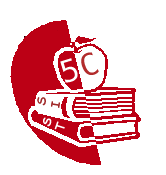Notes from Tues afternoon group on STS
2013 SI
How do you sort out different claims to knowledge?
How does the popular press disseminate findings? Tylenol helps dispel existential angst?
Different knowledge claims based on the audience. In the short term. Relationship between popular media and science. Fox news vs. NYTimes. Short term vs. long term.
Pick a claim that is not too incendiary.
Topic:
Frame with RuPaul’s drag race. Drag queen comes out as transgender, man to woman. RuPaul had to decide whether or not she needed to be disqualified.
Framing question/situation
Opening up question about how cultural knowledge masquerades as scientific. Which are social/cultural and which are scientific? Sex and gender, race, normal/abnormal. Can a particular person be a part of lived community. What are you, really? Can you be permitted to be admitted to Smith? Athletics? Strong ethical dimension, how does one act? (Do you resist?)
Donnie: Different constructs of knowledge: open up the question, not necessarily conclude. Problematizing question that seem to have very certain answers. Of course this is the answer! But wait.
Keep the conversation on a particular ground…so the theme stretches across the cases.
Subject: categories that are scientific/cultural. Different forms of knowledge assertion. Goal: students will understand the difference between the cultural, legal, and scientific framing of an issue.
What is gender testing? Gender testing as an inappropriate (?) exercise of scientific knowledge. Is it genitalia, is it chromosomes, is it androgen receptors? IAAF: excessive androgen levels…serum testosterone in females must be below the male threshold. Or, you have to show that you have insensitivity. Or, you have to be treated in order to compete.
Hijacking of scientific status, its importation into other rhetorical realms.
How do we assess? They have discussed and explored culturally and scientifically defined categories…are there other of these categories that cross these boundaries?
Mara/Steve: language. Color is all in your head. World languages have different color inventories. The word gives you the category.
Assessment: did the activity meet our goals?
Working with information flow group:
Q: where do groups get the legal information? Provide with legal wording.
Three case studies. So…multiple groups doing same case?
How report out? Two minutes each? Keep to three groups, so have only three report outs.
One page handout. Ludmilla: whiteboards—to get overview. Biological/ legal/sociocultural issues on the whiteboard.
Zane: What happens if someone in the group IS one of these groups. What happens if you have a student who identifies with that situation. One of the learning goals would be respectful discourse.
You want be part of this community so you are part of this community.
Appropriateness of the conversation?
Need to deal with inpappropriate comments.
Ground rules. Not what we think of it, but the discussing ideas. Do’n t want to be mouthpiece.
These groups aren’t Other. They are among us. iClicker question to find out, do you know a transgender person? Do you know a gay person?
Congenital adrenal hyperplasia, cosmetic surgery.
I clicker question. Do you know anyone who is transgender, or gay, or prefer not to answer.
How does scientific knowledge impact out view of the world, can impact how we see the world. Modeling this kind of conversation.
Talk about the ideas, not the person.
How to assess respectful dialogue? Someone could take notes. One of us could suggest wording, phrasing. I heard such and such an idea and I wanted to comment on that. Transcripts to see if there is progress in respectful speech.
Monica Beverly Hillz
Caster Semenya “gender test”—what was it?
Critique: movie at the end? At the beginning? Use it to frame the conversation?
Group:
- Log in to post comments
